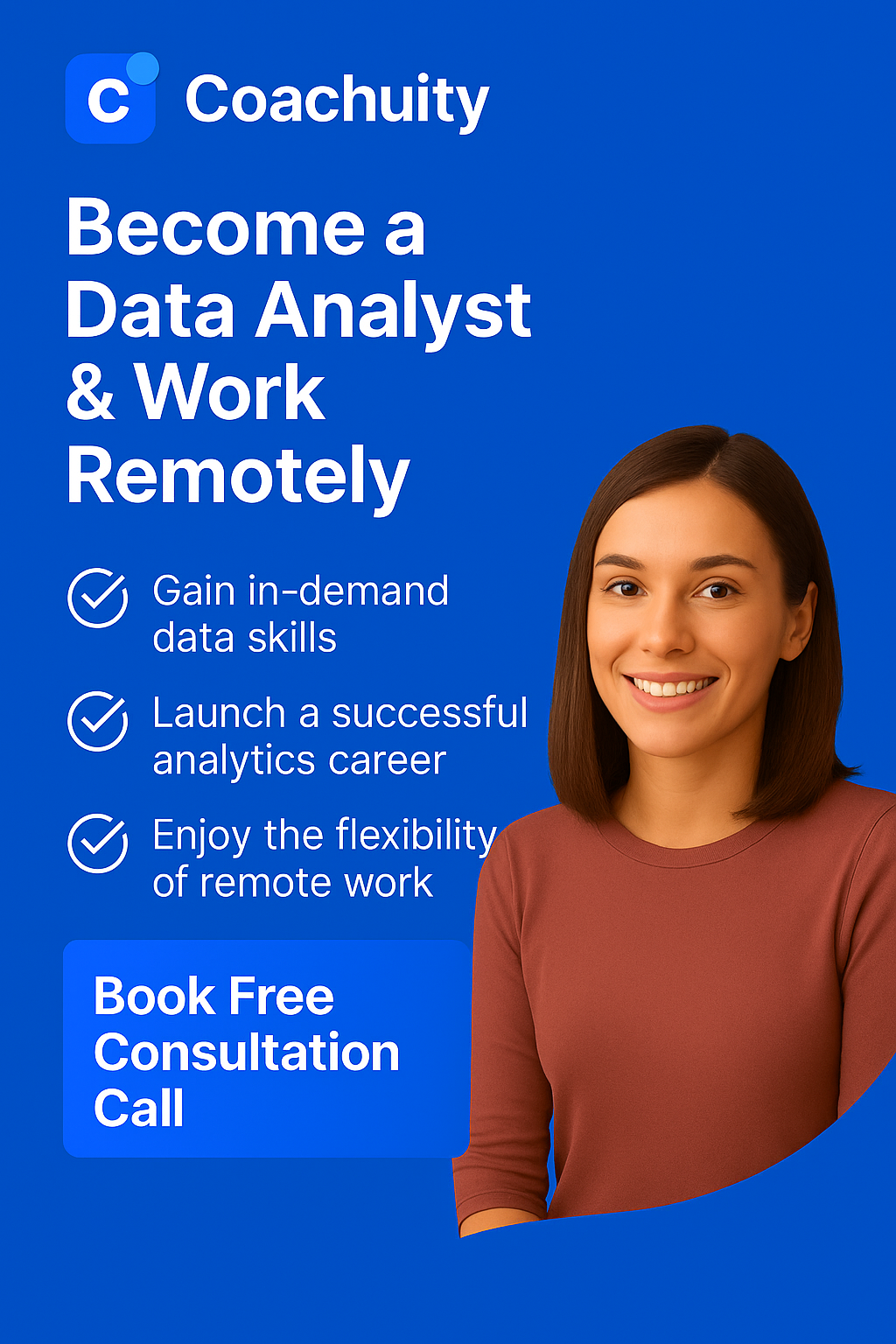
How to Analyze Data for a Living: A Beginner’s Guide to Starting a Career in Data Analysis
![]() August 23, 2025
August 23, 2025
Every business today runs on data. Whether it’s tracking customer preferences, predicting sales, or improving healthcare outcomes, data has become the foundation for decision-making. Behind these insights are data analysts—professionals who take raw information and turn it into stories that drive growth. If you’ve ever wondered how to analyze data for a living, you’re already thinking about one of the most practical and future-proof career paths available today. Data analysis offers strong salaries, flexible working opportunities (including remote roles), and a clear progression path into advanced careers such as data science, business intelligence, or analytics management. Best of all, you don’t need to be a tech expert or have years of coding experience to start. With structured training, dedicated mentorship, and placement support, anyone can learn to analyze data for a living and turn it into a sustainable career. The journey begins with developing the technical and professional skills that employers value most. Our Data Analysis Training Program is designed for beginners and career changers who want to build job-ready skills. The program covers everything you need to know to step confidently into a data analyst role: Excel & Spreadsheets: Learn how to clean, organise, and explore datasets using advanced functions, charts, and pivot tables. SQL (Structured Query Language): Master querying databases to extract, filter, and combine large sets of information. Python for Data Analysis: Gain beginner coding skills for automating tasks and analysing complex data. Data Visualisation: Create compelling dashboards and reports with Power BI and Tableau to present insights effectively. Business Intelligence Fundamentals: Learn how to turn numbers into actionable business recommendations. Soft Skills for Analysts: Develop problem-solving, critical thinking, and communication skills to explain insights clearly to both technical and non-technical audiences. By the end of the program, you won’t just “know” the theory—you’ll have a portfolio of projects to prove your abilities to future employers. Starting a new career can be intimidating, especially if you’re worried about going it alone. That’s why mentorship is at the heart of our program. Each student is matched with a dedicated data analyst mentor who has real-world industry experience. Your mentor will: Review your assignments and give personalised feedback. Share insider insights about workplace tools and expectations. Conduct mock interviews to prepare you for job applications. Help you overcome challenges and stay accountable. Having a mentor means you’re not just learning in isolation—you’re learning with guidance, encouragement, and practical advice tailored to your goals. Learning to analyze data is only part of the journey. To truly analyze data for a living, you need to break into the job market. That’s why our program includes comprehensive career placement support. Here’s how we help: CV & Cover Letter Optimisation: Showcase your new skills in ways that attract recruiters. LinkedIn Branding: Create a profile that stands out and makes employers come to you. Job Search Coaching: Learn how to identify opportunities and apply strategically. Interview Preparation: Practise both technical and behavioural questions with feedback. Employer Network Access: Connect with companies actively hiring entry-level analysts. With this support, you won’t just finish the training—you’ll graduate with a clear roadmap to your first data analyst role. Case Study – Sofia, Former Retail Worker Case Study – Daniel, Recent Graduate These stories highlight a simple truth: with the right training and mentorship, anyone can learn how to analyze data for a living and transform their career path. Still wondering if data analysis is right for you? Here are some compelling reasons to consider: High Demand: Companies everywhere are hiring analysts to make sense of growing data. Competitive Pay: Entry-level analysts earn above-average starting salaries, with rapid growth potential. Career Security: Data analysis is considered a future-proof career. Flexibility: Many roles allow remote or hybrid work. Versatility: Skills are transferable across industries like finance, healthcare, marketing, and technology. In short, learning how to analyze data for a living gives you options, security, and growth potential. Our program is ideal for: Career changers with no prior technical experience. Recent graduates looking to build in-demand, job-ready skills. Working professionals who want to transition into tech. Anyone curious and motivated to start a rewarding career in data. No coding or maths background is required—just a willingness to learn. If you’ve been searching for how to analyze data for a living, this is your answer. With structured training, dedicated mentorship, and placement support, you’ll have everything you need to step confidently into one of the most in-demand careers today. Stop second-guessing yourself and start building your future. Enroll in our Data Analyst Training and Mentorship Program today—and take the first step toward analyzing data for a living.How to Analyze Data for a Living: A Beginner’s Guide to Starting a Career in Data Analysis
Introduction: Why Learning to Analyze Data Can Change Your Life
Step One: Get the Right Training
Skills You’ll Learn
Step Two: Learn with a Mentor by Your Side
Step Three: Turn Training into a Job with Placement Support
Success Stories: How Others Learned to Analyze Data for a Living
Sofia worked in retail management but wanted a career with more stability and flexibility. After joining the mentorship program, she learned SQL and Power BI, built a strong portfolio, and landed her first analyst role at a logistics company. Within a year, she was promoted to a mid-level analyst position.
Daniel had just graduated with a degree in psychology but struggled to find a role in his field. Through the training program, he mastered Excel, Python, and Tableau. With placement support, he secured a remote junior analyst position in the healthcare industry, where he now analyses patient outcome data to support clinical decisions.Why Choose Data Analysis as a Career?
Who Is This Program For?
Start Analyzing Data for a Living Today
